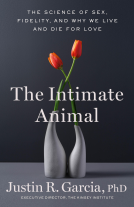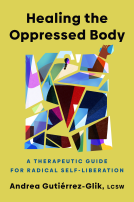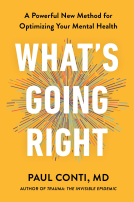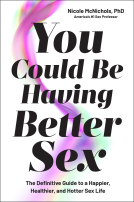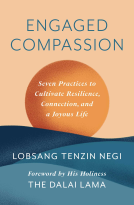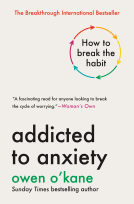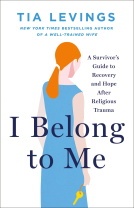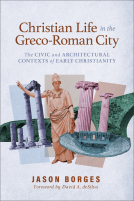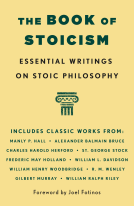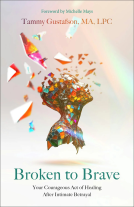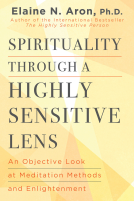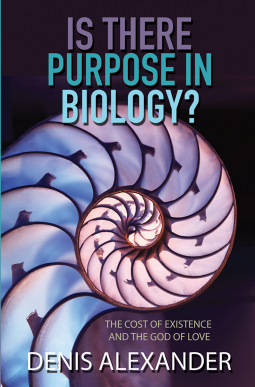
Is There Purpose in Biology?
The cost of existence and the God of love
by Denis Alexander
This title was previously available on NetGalley and is now archived.
Send NetGalley books directly to your Kindle or Kindle app
1
To read on a Kindle or Kindle app, please add kindle@netgalley.com as an approved email address to receive files in your Amazon account. Click here for step-by-step instructions.
2
Also find your Kindle email address within your Amazon account, and enter it here.
Pub Date Jun 22 2018 | Archive Date Oct 02 2018
Lion Hudson Ltd | Monarch Books
Talking about this book? Use #IsTherePurposeInBiology #NetGalley. More hashtag tips!
Description
Atheists assert that the natural world has no meaning or purpose. Dr Denis Alexander, Emeritus Director of The Faraday Institute for Science and Religion at St. Edmunds College, Cambridge, draws a different conclusion.
Not only do recent evolutionary biological data appear inconsistent with the claim that the world is purposeless, but the Christian doctrine of creation has provided and continues to provide both context and stimulus for the study of the natural world. Christians started biology!
However, is a belief in an omnipotent, benign Creator consistent with a world of pain and suffering? From a lifetime's study in the biological sciences, Denis Alexander believes that whilst the cost of existence is extremely high, it can nonetheless be squared with the idea of a God of love whose ultimate purposes for humankind render that cost more comprehensible.
A Note From the Publisher
Available Editions
| EDITION | Other Format |
| ISBN | 9780857217141 |
| PRICE | $14.99 (USD) |
Average rating from 4 members
Featured Reviews
Denis Alexander’s “Is There Purpose in Biology,” is just the book I was looking for to help me hone my theodicy. It seems that many who are angry at God because of the world we live in, want an altogether different world than the one we have. But, then when asked what kind of world would make sense where a loving, uncontrolling, and non-coercive God actually exists, the proposals are non-existent or absurd. But, what if God is “love”? Since love takes risks, doesn’t force, coerce, control, or manipulate, how would that kind of God work in the world? It seems that if we took the notion of God as love seriously, we may end up with precisely the world we find ourselves in. Alexander’s book helps detail the kind of world that needs to exist if God was actually loving. With his keen insight and his breadth of knowledge of theology and science, this book is a must read!
 Theresa B, Reviewer
Theresa B, Reviewer
As an atheist, nothing in this book changed my mind or made me reconsider. However I had to admire the book. It is a very well written book, written almost like a thesis, studded with references to other works from a variety of sources to support the text.
I found it thought provoking, and not an altogether easy read but enjoyable nonetheless.
 Jo-anne A, Reviewer
Jo-anne A, Reviewer
In this book Alexander takes the reader through evolutionary biology with a number of complex examples. However he then considered the element of chance and relates this to comparative religion. Overall an erudite book which attempts to link science and belief with a certain degree of distance.
Summary: An exploration of the idea purpose in biology, the association of purposelessness with the randomness and chance of evolution and whether this is warranted, and how a Christian perspective may both be consistent with what may be observed, and how Christian theology may deal with questions of pain and suffering in evolutionary processes.
One of the common conclusions advanced with the support of evolutionary theory is that there is no inherent purpose evident in the natural world. Much of this is predicated on a process in which life arises through chance and randomness, and that any apparent purpose is illusory.
Denis Alexander, a researcher in biochemistry and Emeritus Director of the Faraday Institute for Science and Religion, argues in this book that this is not necessarily a warranted conclusion. First, though he is careful to distinguish between Purpose and purpose. He will not be trying to show evidence of metaphysical Purpose in biology, but that the processes of evolution do evidence purpose in the sense that outcomes were not strictly random, either at a genetic or macro level, but are constrained in certain directions consistent with "purpose."
Chapter 1 begins with a survey of the use of the language of Purpose and purpose in biology through history from the Greeks up through the beginnings of science, and the subsequent denial of purpose as the theory of evolution became established. Then chapters 2 through 4 get "into the weeds" of evolutionary science.
Chapter 2 argues that the direction of evolution toward increasing complexity over time may be reflective of purpose and also that body size and plan is subject to "allometric scaling" and cannot simply occur in any form or size. Convergence where different species in different lines under similar conditions evolve similar structures, is another example of this. Chapter 3 observes that similar constraints exist at the molecular level. Chapter 4 then looks at the genetic level, and the idea of random mutations. It turns out that mutations are not purely random but seem to occur at particular places on chromosomes. Likewise, forces of natural selection are not random, but also constrain outcomes in certain directions. These chapters are fairly technical, but offer a good glimpse of the current state of the discussions in evolutionary biology, as opposed to popular caricatures.
In chapter 5, Alexander shifts to theological discussion. He recognizes that in practice, people do introduce discussions of Purpose that reflect their worldviews. What he does is articulate an understanding of "top down" creation at work through evolutionary processes--not in the "gaps" but throughout, a version of theistic evolution. A significant aspect of this has to do with his belief in God's "immanence" in creation, working in and through evolutionary processes.
Chapter 6 concludes the discussion by dealing with one of the problems of his proposal. To argue that God is involved "immanently" in evolutionary processes makes God in some ways responsible for the pain and suffering implicit for both animal and human species facing natural selection, or dying because of mutations leading to genetic defects or cancer. Alexander dismisses responses of "fallen creation" or attributions of suffering to sin, arguing for a kind of "freedom" in evolutionary processes that necessarily includes pain--that God no more compels creation than he does human beings.
I suspect there is material here in every chapter that someone will take exception to, including the basic theistic evolutionary position Alexander takes. Those who dismiss theism will reject Alexander's case for purpose. Others will struggle with his theodicy. Some would argue that you can see not only purpose but Purpose in biological science in itself. I would contend that the strength of Alexander's argument is that it is neither dismissive of evolutionary science nor of a God engaged with creation working out God's purposes. He shows how the two are at least consonant with each other. He chooses a "messy" explanation to the problem of pain that leaves room for mystery rather than pat answers. For those not interested in an oppositional approach to evolution and creation, Alexander's work offers a way, or at least hints of a way forward.
____________________________
Disclosure of Material Connection: I received a complimentary review copy of this book from the publisher via Netgalley in exchange for an honest review. The opinions I have expressed are my own.
Readers who liked this book also liked:
Justin R. Garcia
Health, Mind & Body, Nonfiction (Adult), Parenting, Families, Relationships
Nicole McNichols
Health, Mind & Body, Parenting, Families, Relationships, Self-Help
Elaine N. Aron
Health, Mind & Body, Nonfiction (Adult), Self-Help

